Football Industry Management Report: Evolution and Governance
VerifiedAdded on 2020/04/07
|5
|829
|78
Report
AI Summary
This report provides a comprehensive analysis of the football industry's management, drawing insights from the evolution of English football clubs from community-based entities to multi-million dollar businesses. The report examines the shift towards commercialization, the impact of investments, and the crucial role of stakeholder relationships. It highlights key aspects of financial management, governance policies, and the implications of different ownership models, including the mutual ownership approach. The analysis explores the influence of events like the BSkyB TV deal and the rise of foreign investors, as well as the effects of economic downturns. The report emphasizes the importance of stakeholder accountability, sustainable governance, and the need for strategic government interventions. Ultimately, it underscores how the football industry's growth is driven by fan demand, the adoption of new business models, and the evolving concept of ownership, offering insights into the financial strategies, stakeholder impact, and governance challenges within the sports industry.
1 out of 5
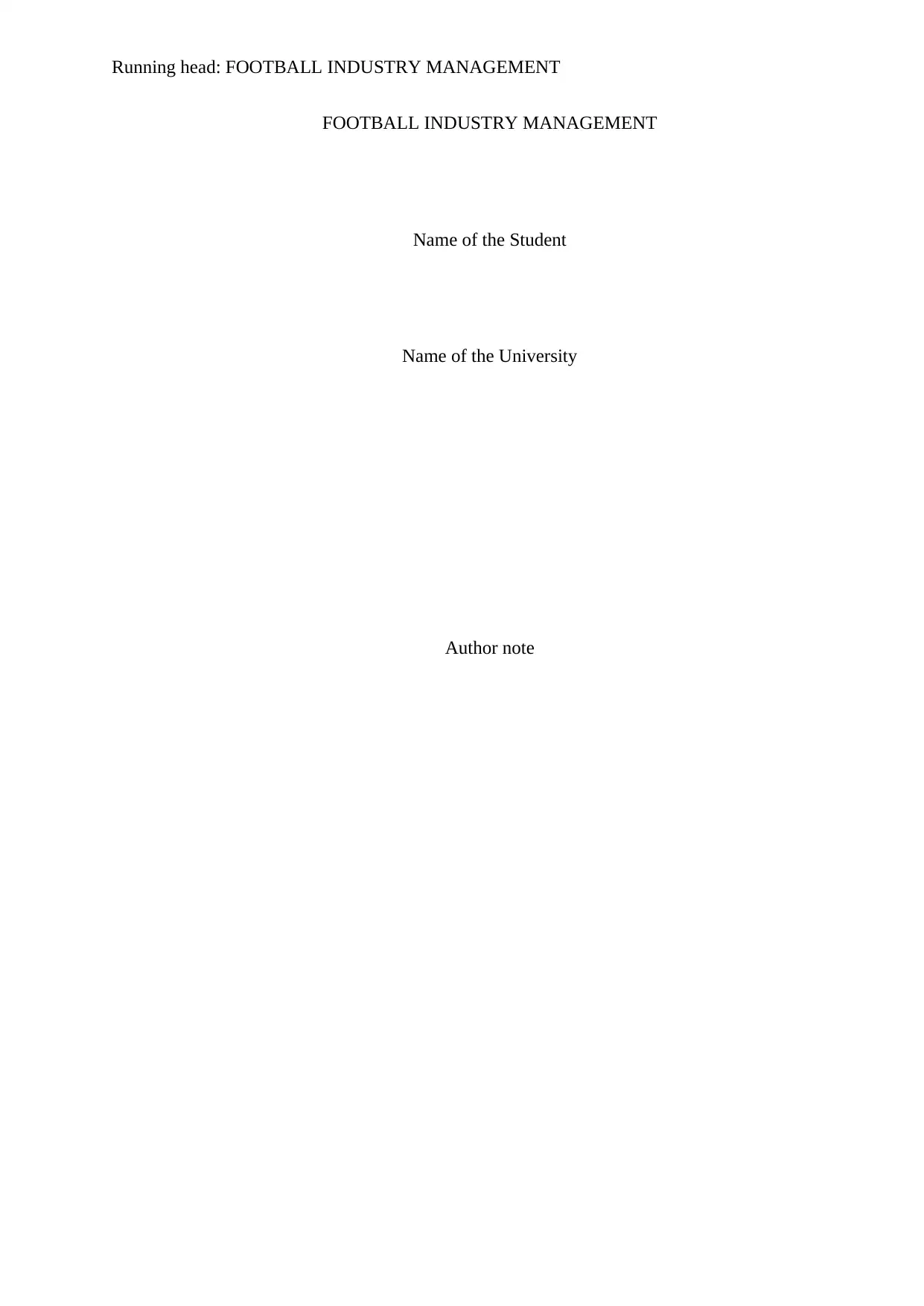
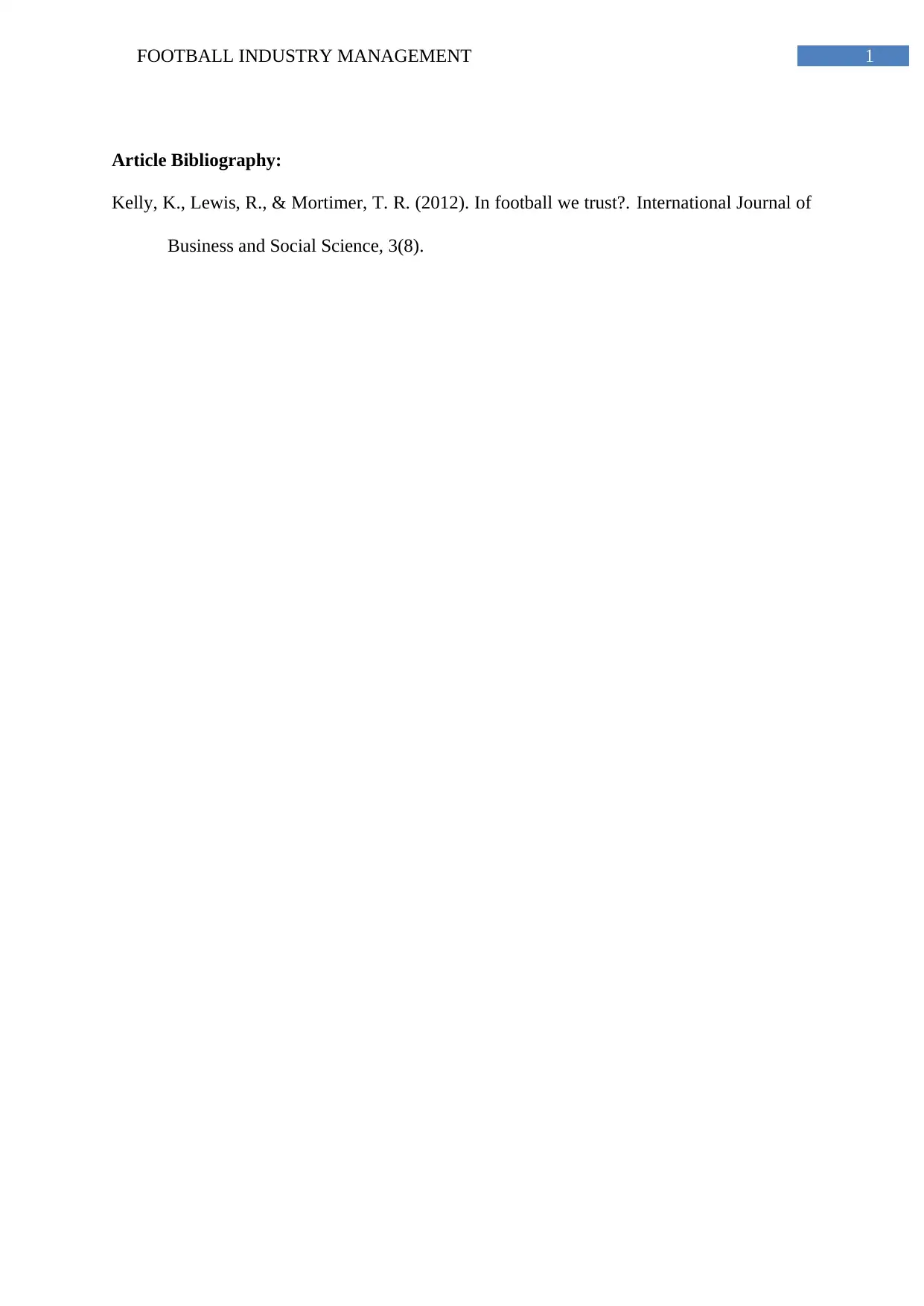
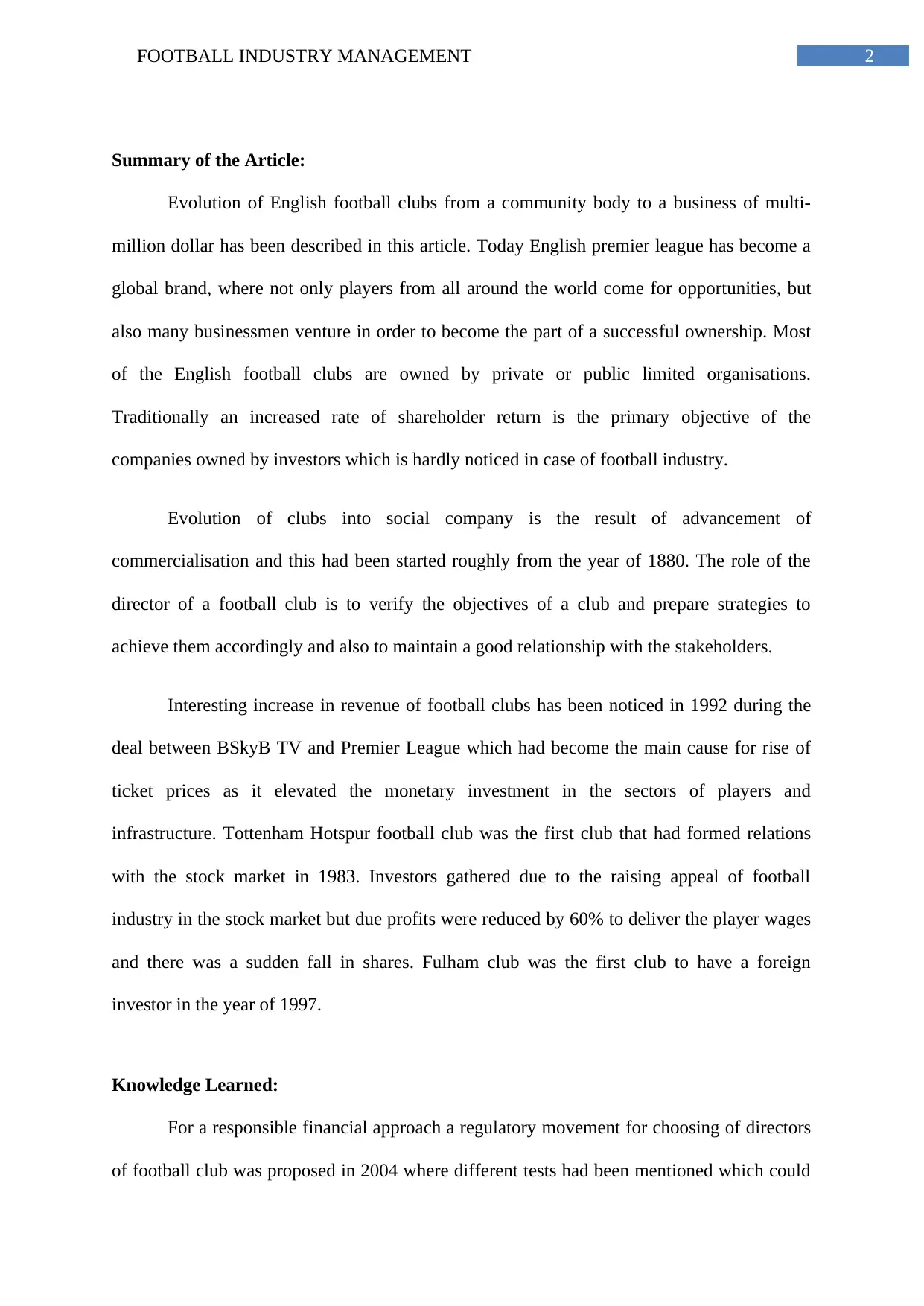

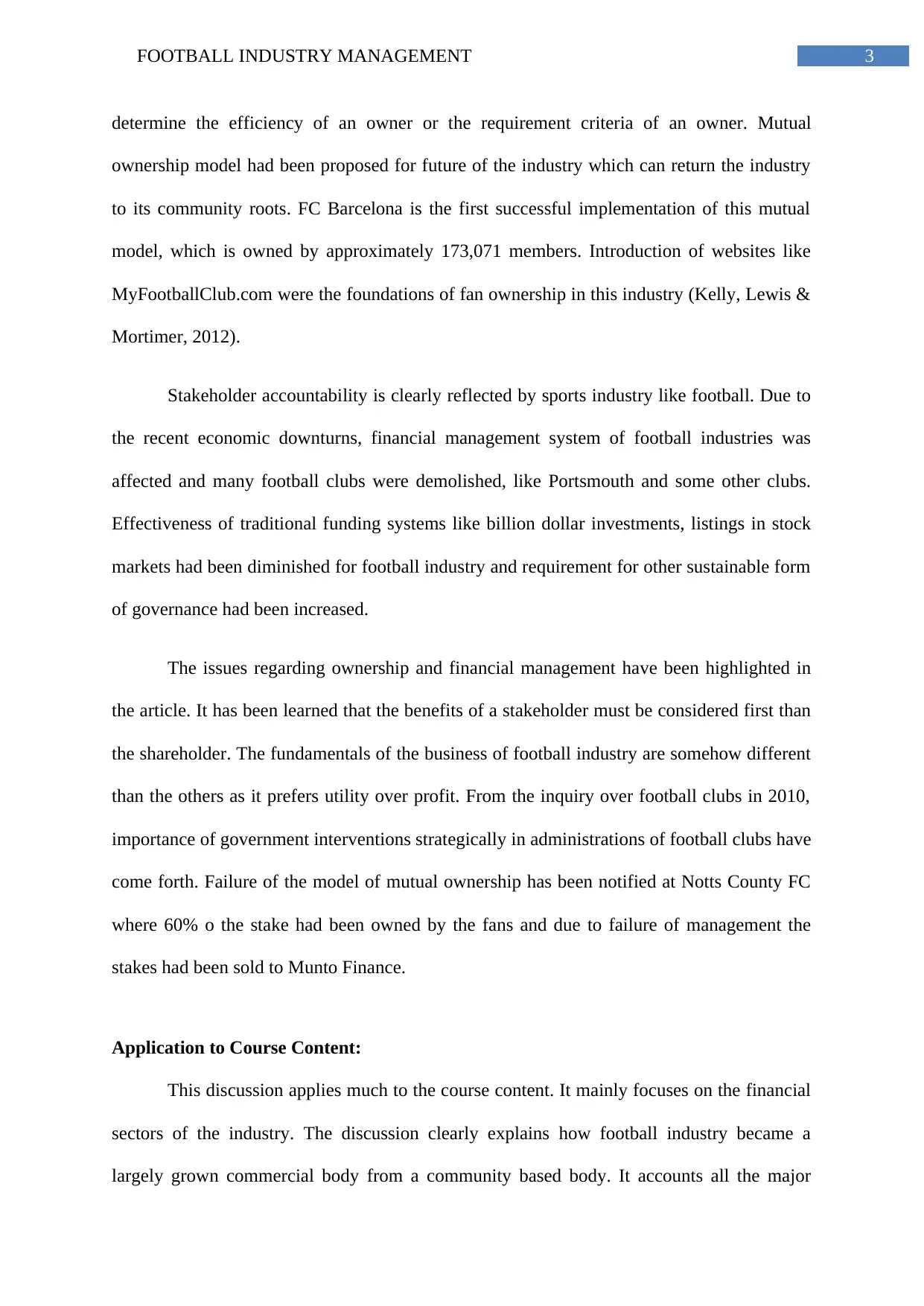
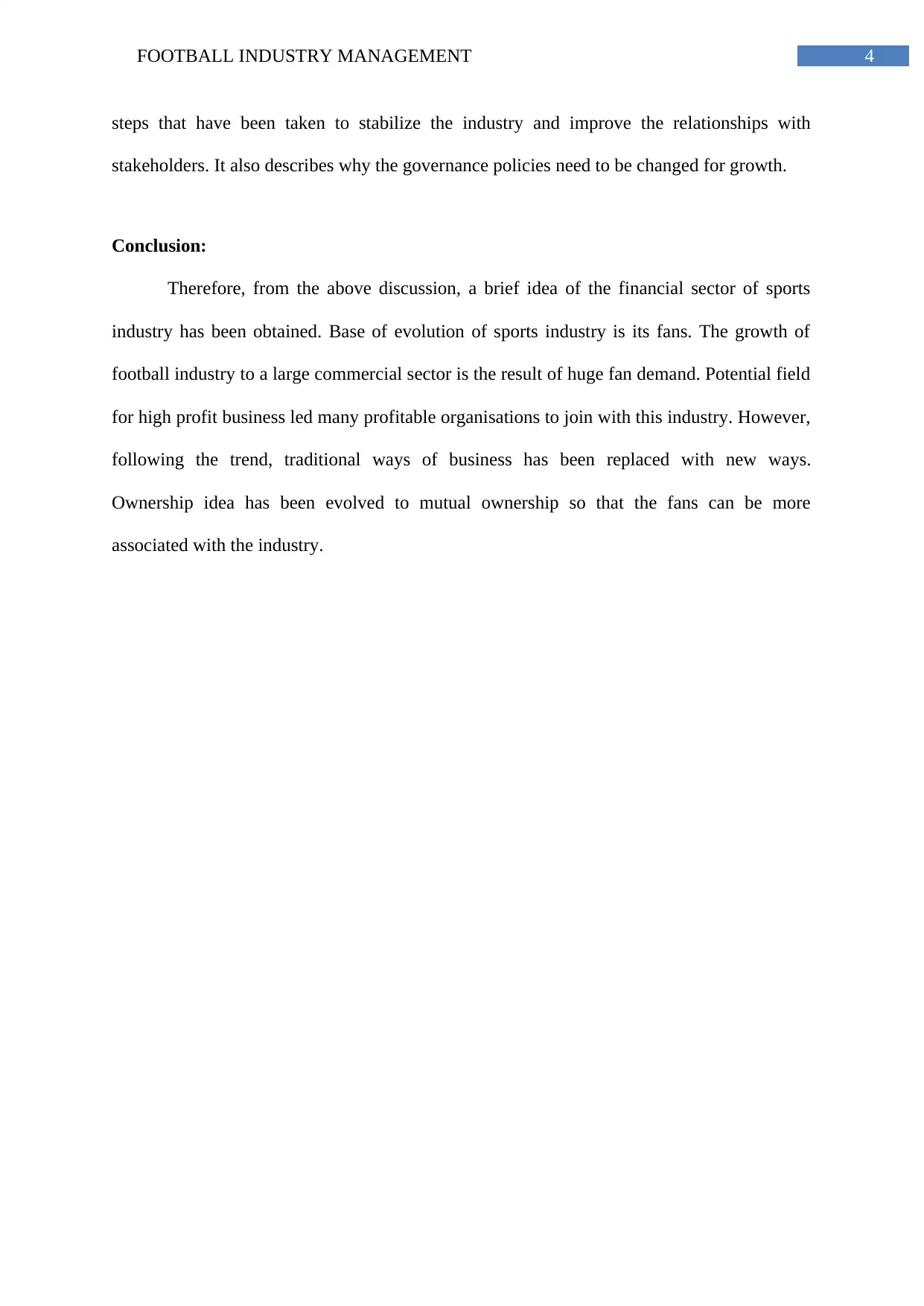
![[object Object]](/_next/static/media/star-bottom.7253800d.svg)